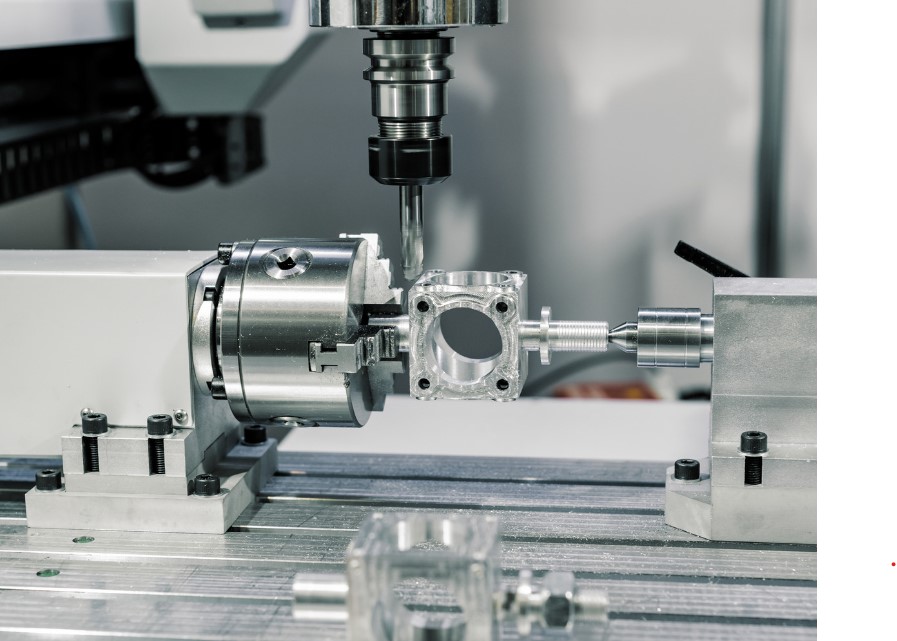Recent years have seen Computer Numerical Control (CNC) machining has revolutionized the field of engineering and manufacturing. CNC Machining is a process that combines digital technology and traditional machining to produce high-precision components across a range of industries. This article examines the advantages and the applications of CNC-machining. It also highlights its influence on the current technology.

The Mechanics of CNC Machining
CNC machining is a subtractive manufacturing technique by which it is able to remove the material from a workpiece or block to produce the shape you want. The software utilized to control the machine’s movement is pre-programmed. The codes used by CNC machines may differ based on the type of machine and degree of complexity of the product being manufactured. The principle behind it is the same. High-speed cutters precisely sculpt material into the final product.
CNC machine machining offers many benefits. One of these is its accuracy. Its digital nature permits the production of consistent and precise. This reduces the chance of human error while maintaining the same quality across batches. This level of accuracy is vital in industries like aerospace and medical devices.
The role of digital computers in CNC machine operation
The integration of digital technology is at the foundation of CNC machine’s effectiveness and precision. CNC machines are controlled by specialized software that automates the entire manufacturing process. This software converts computer-aided designs (CAD) designs into a set of precise instructions that the CNC machine then follows to create the part. The instructions are specific from the cut depth as well as the angle, and also the speed of the machine.
In industrial facilities of larger size, computers can be connected directly to CNC machines. This makes it possible to communicate seamlessly and control. This integration allows for real-time monitoring, which ensures high performance and minimizes downtime. The automation of CNC machineries also permits continuous operation, significantly increasing productivity while reducing time to market.
CNC Machining and Its Benefits
CNC machining is a superior method of manufacturing. Its capability to make intricate and complex components with high precision is just one of the biggest advantages. CNC machine’s precision can eliminate the need for manual adjustments, or to Rework. It reduces waste, and enhances efficiency. Additionally, CNC machines can operate continuously, which makes them suitable for production runs with high volumes.
Another benefit is the versatility of CNC processing. By changing the program, the same machine can make a variety of different parts. This flexibility is what makes CNC machining suitable for both prototyping and mass production, which allows manufacturers to respond quickly to market trends.
Automating CNC machines improves safety at work. Injuries and accidents are less likely when manual intervention is not needed. The consistent quality of CNC machines improves the performance and reliability of products, which contributes to a better customer experience.
CNC Machining Services: Benefits to Industries
CNC-based machining is used in a myriad of industries. Each benefiting from its accuracy, efficiency and flexibility. In the aerospace industry, CNC machines produce critical components that have to meet strict quality and safety standards. The medical device industry relies on CNC manufacturing for the manufacture of surgical instruments that are complex and implants, where accuracy is essential.
The automotive industry uses CNC machines to create engine parts, transmission parts, and intricate exterior and interior features. The same goes for electronics benefit from the ability of CNC to make small, precise parts for consumer electronics, communications devices, and various other electronic items. Even the art and jewelry industries make use of CNC technology to create intricate designs and unique pieces.
The Future of CNC Machining
CNC capabilities for machining are anticipated to expand as technology advances. Technologies like multi-axis machining and additive manufacturing integration and advanced materials will continue to push the boundaries of what is possible with CNC technology. Machine learning and artificial intelligence will likely enhance the efficiency and precision of CNC manufacturing.
CNC machining is an extremely powerful tool that has changed the face of engineering and manufacturing in the present. It has unbeatable precision, flexibility, and efficiency. Its capability to make complex parts with high accuracy makes it an indispensable instrument across a range of industries. CNC machining, as the technology develops will remain a key component in manufacturing’s future.